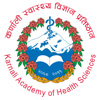Bachelor in Pharmacy (Bpharm)
Bachelor in Pharmacy (Bpharm)
Bachelor of Pharmacy (B. Pharm) Overview
1. Introduction
The Bachelor of Pharmacy (B. Pharm) is a four-year undergraduate program designed to equip students with a comprehensive understanding of pharmaceutical sciences, focusing on both allopathic and herbal medicines.
Students learn essential skills such as manufacturing dosage forms, medication counseling, and quality control. In the developed world, nearly 97% of pharmacists work in hospital and community settings, but in Nepal, the scenario is different, with a strong industrial focus and emerging opportunities in hospitals and communities.
Core subjects include:
· Pharmaceutics
· Medicinal Chemistry
· Pharmacognosy
· Himalayan Herbal Medicine and Herbal Medicine Technology
· Pharmacology
· Pharmacotherapeutics
· Hospital and Community Pharmacy
With Nepal's transition to a federal governance system, there is an urgent need for locally trained pharmacists capable of strengthening healthcare systems by ensuring quality medicine manufacturing, supply chain management, and patient-centered care. This program aims to bridge the “needs gap” and uplift healthcare standards in Nepal, especially in underserved regions like Karnali.
2. Competencies of B. Pharm Graduates (KAHS)
We embrace Competency-Based Pharmacy Education to prepare pharmacists who can serve both local and global needs.
Graduates will possess the following competencies (adapted from FIP global standards, contextualized for Nepal):
· Pharmaceutical Public Health: Health promotion, medicines information, and patient counseling.
· Pharmaceutical Care: Medicine assessment, compounding, dispensing, and therapy monitoring.
· Organization and Management: Procurement, supply chain, budgeting, HR management, and organizational leadership.
· Professional and Personal Skills: Communication, lifelong learning (CPD), ethical practice, quality assurance, and workplace research.
· Pharmaceutical Entrepreneurship (Unique to KAHS): Focus on manufacturing, quality assurance, and innovation in herbal and allopathic formulations to enhance the local economy.
Note: KAHS is pioneering efforts to integrate herbal medicine expertise into pharmacy practice, reflecting the unique needs and opportunities of the Karnali region.
3. Educational Goals and Objectives
The KAHS Bachelor of Pharmacy program strives to:
· Produce graduates who are competent, ethical, and professional.
· Cultivate critical thinking, leadership qualities, and self-reliance.
· Encourage compassion, respect, and fairness towards patients and society.
· Nurture a spirit of lifelong learning and adaptability to changing health, environmental, and socioeconomic conditions.
Unique Advantage
Operating in Jumla, a remote, high-altitude region rich in medicinal plant diversity, KAHS’s M. Pharm program provides a one-of-a-kind opportunity to engage in real-world research on native herbal resources and address critical gaps in clinical pharmacy practice in Nepal.
Unique Location Advantage
School of Pharmacy, KAHS, is proudly situated in Jumla, one of Nepal’s highest and most remote mountainous regions.
This makes it the first pharmacy school in Nepal (probably also in world) to operate at such a high altitude, offering students unparalleled opportunities to explore indigenous herbal resources, address rural healthcare challenges, and pioneer pharmacy education in extreme environments.
Current Faculty
Prof. Bijay Aryal, PhD, PostDoc (Assistant Dean, School of Pharmacy)
Associate Prof. Ramesh Raj Padhya, M. Pharm
Assistant Professor Dirgha Raj Joshi, PhD, PostDoc
Assistant Professor Bishnu Adhikari
Lecturer Rabindra Kumar Rokaya
Lecturer Nisha Adhikari, M. Pharm
Sandip Shah, B. Pharm-Lab Manager
